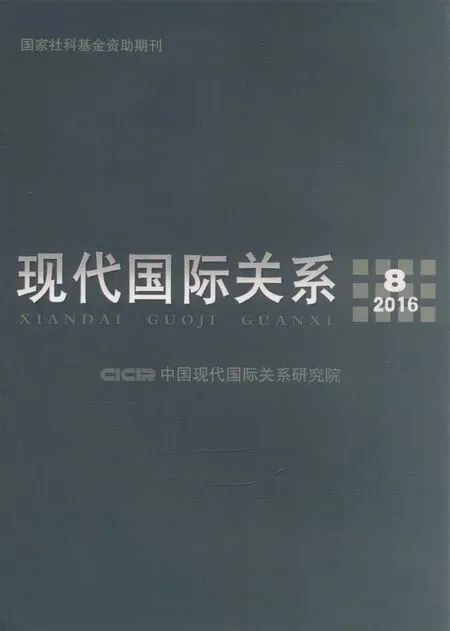Abstracts
s
What’s Wrong with the West?
Editor’s Note: Over the past two years, the US and Europe have faced more and more problems and contradictions in political, social, economic and security areas. The Trump Phenomenon, Brexit, frequent terrorist attacks, populism, anti-elite sentiment have triggered a question: What is wrong with the Western countries? Our journal has invited experts and scholars to analyse the dilemma the Western countries face.
West, Problems
An Analysis of the US Drone Attacks against Terrorism
WanXiaohong
Abstract: The US drone attacks against terrorism have begun under the George W. Bush Administration and have killed many terrorist leaders and members. These attacks have raised efficiency of anti-terrorist operation, reduced death toll of the US troops, and saved huge military expenditure. However, they also have caused negative effects, such as violating a state’s sovereignty, international law and American constitution, killing a great number of innocent people, making the local people’s life full of fear, stimulating anti-American sentiment. In the future, the US government will continue to implement drone attacks and will definitely face more challenges.
Keywords: Drone Attacks, Anti-terrorism Operation, International Law, Anti-American Sentiment
The Evolution of World Economic Pattern and Emerging Middle Powers’ Statecraft
DaiWeilai
Abstract: At present, the world economic pattern is undergoing tremendous changes, while emerging economies continue to enhance their strength and create a mutiple-centered international order. As an important branch of the emerging power, the emerging middle powers conform to the world order changes, advance reform, shape internal function, improve national image and enhance power, promote international status, and expand their international influence. Consequently, the emerging middle powers become significant players which are indispensable on the international stage, and develop statecraft with characteristics. Nevertheless, the emerging middle powers must cope with challenges of sustainable economic development, the internal political stability, international environmental pressure.
Keywords: World Economic Pattern Change, International Order, Emerging Middle Powers, Statecraft, International Circumstance
China-US Cooperation on Climate Change
ZhaoXingshu
Abstract: In recent years, China and the U.S. have interacted on climate change more frequently, and made a lot of important progresses. This paper reviews the development path of China-US climate change cooperation since the 1990s. It also analyzes main features and deep rooted causes of the cooperation, and explores the possible impacts on the global climate regime building as well as the challenges two countries face. The author finds that the interactions between the two countries on climate change have experienced an expanding and deepening process. China-US cooperation has showed three striking characteristics: first, reaching consensus on the core elements of the UN negotiations; second, functional cooperation on the main sources of emissions; third, inclusive cooperation focusing on local and the private sectors. China-US climate cooperation has been enhanced not only because of the common interests of the two countries, but also the changing attitudes of domestic interest groups and worlwide trend to build climate alliances. China-US cooperation on climate change has significant influence. China and the US have started to become the co-leaders of global climate governance.
Keywords: China-US Cooperation, Climate Change, International Climate Regime, Leadership
Current Situation of RMB’s Internationalization in Europe and Its Prospect
LiuMingli
Abstract: China’s strategy of promoting the internationalization of RMB was supported significantly by Europe. The causes are as follows: China and Europe’s close economic relations leads to the need of using RMB, Europe seeks new business opportunity against the backdrop of sluggish economic growth, Europe wants to balance the dollar hegemony to prevent external risk. In the future, internationalization of RMB in Europe is still promising. But at implementation level, China may need to consider more market cultivation rather than government push. In addition, since the Brexit has changed Europe’s financial structure, it would be good for China to attach more importance to both UK and Eurozone in terms of financial cooperation.
Keywords: RMB, Internationalization, Currency, China-Europe Relations
(Edited by Zhang Yimeng)

